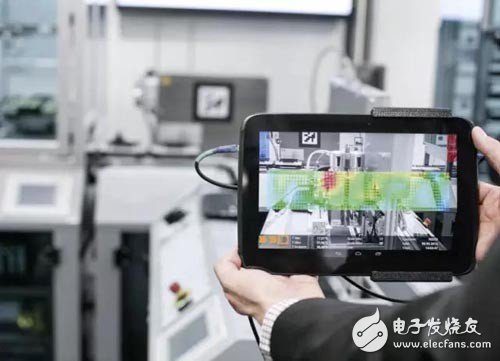Whether its name is German Industry 4.0, US Industrial Internet or China Manufacturing 2025, the cross-border integration of information technology and traditional industries has become an inevitable trend. An era of manufacturing transformation into customized, intelligent manufacturing and manufacturing services has arrived. Different from the popular third industrial revolution in the United States, for the evolution of industrial history, Germany described the progressive progress of manufacturing technology as the four stages of the industrial revolution, the evolution of Industry 4.0. In the second half of the 18th century, the industrial 1.0 era marked by the birth of steam locomotives, the industrial 2.0 characterized by the Ford assembly line and the electrification in the early 20th century, began in the 1970s with the labeling of the industry 3.0 for automation. Industry 4.0, which is dominated by smart manufacturing, has become one of the hottest terms in the moment. To put it simply, Industry 4.0, which started in Germany in 2013, aims to transform manufacturing into a highly intelligent way by leveraging information and communication technology and the cyberspace virtual system, the CPS (Cyber ​​Physical System). Industry 4.0 depicts the future vision of manufacturing, with the aim of improving the level of intelligence in manufacturing, building smart factories with adaptability and resource efficiency, and integrating customers and business partners in business processes and value processes. Physical systems and the Internet of Things. In the United States, the concept similar to "Industry 4.0" is called "Industrial Internet". Although the names are different, the basic concept of the two concepts is the same, that is, connecting virtual networks with entities to form a more efficient production system. Unlike the “hard†manufacturing that Germany emphasizes, the United States, with its software and Internet economy developed, is more focused on promoting a new round of industrial revolution in “soft†services, hoping to use the Internet to activate traditional industries and maintain the long-term competitiveness of manufacturing. On May 18 this year, the State Council officially released the "Made in China 2025" plan, and the long-awaited Chinese version of the "Industry 4.0 Plan" was finally released. Among the ten key areas it has defined, energy-saving and new energy vehicles are also included. Subsequently, on June 24th, the leading organization of the "Made in China 2025" strategy - the National Manufacturing Power Building Leading Group was announced. The Vice Premier of the State Council Ma Kai served as the team leader, and the Minister of Industry and Information Technology, Miao Wei and others served as deputy heads. They will lead China's implementation of the first decade of the manufacturing power strategy. So, how can we better understand the "Made in China 2025" strategy? We believe that it is a shortcut to deeply grasp the German Industry 4.0 concept that has been popular in the industry in the past year. We must admit that smart manufacturing is indeed a clear path for the future development of the manufacturing industry, and how the overall weak “Made in China†shifts to “China's intellectual creation†has become a difficult issue. For the automotive industry in which it is, it is essential to seriously think about and plan for the future under this framework. Unlike the Chinese manufacturing 2025, which was initially hesitant to focus on the automotive industry, the German automotive industry has become an active construction, participation and promotion of the Industry 4.0 framework at the initial stage due to its high technical content and intelligence in the manufacturing industry. By. During this year's Shanghai Auto Show, in a series of intensive interviews on related topics, it was found that mainstream German vehicle and component suppliers including Mercedes-Benz, BMW, Volkswagen and Bosch have already begun to think about the impact and possibility of Industry 4.0 for enterprise development. Expand the active layout. In contrast, in addition to Changan, SAIC Chase and other car companies responded positively, domestic car manufacturers are not familiar with this concept, public opinion and action. There are also many interpretations of the concept of Industry 4.0. Some people clamor for the opportunity of China's manufacturing industry. Others believe that the German government pushes Industry 4.0, which is a national-level business strategy, with the aim of exporting more intelligence to developing countries such as China. Factory equipment and standards. The report and discussion of the cover story of "Automotive Business Review" hopes to clear the relevant fog and describe what kind of picture, what opportunities, and which companies are making efforts in the future of such a trend. What is hindering their development. 1L Air Fryer,Air Deep Fryers,Power Air Fryer,Stainless Steel Air Fryer Ningbo Anbo United Electric Appliance Co.,ltd , https://www.airfryerfactory.com